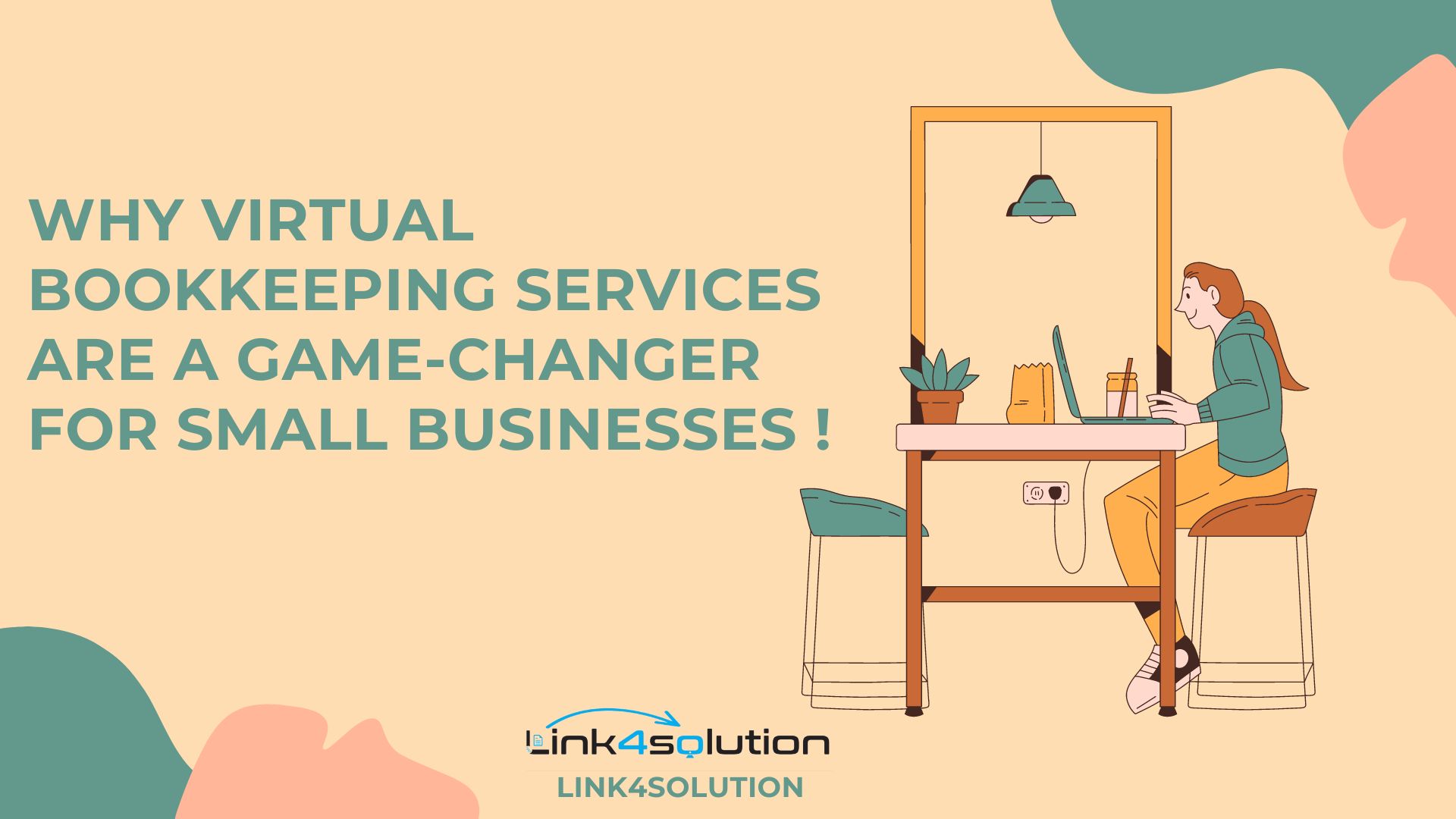The Significance of Virtual Bookkeepers in Small Business Operations*
For small business owners, navigating the multifaceted world of financial management can be daunting. Virtual bookkeeping services stand out as a crucial element, offering not just a solution to manage finances but also a strategic advantage that propels business growth. These services are particularly vital for small businesses, where resource allocation must be optimized, and financial oversight is key to sustainability.
*Why Virtual Bookkeeping Services are a Game-Changer for Small Businesses*
– *Financial Efficiency and Cost Savings*: Hiring a full-time bookkeeper can significantly strain a small business’s budget due to salaries and benefits. Virtual bookkeeping services, on the other hand, provide a cost-effective solution by eliminating the overhead costs associated with an in-house employee. This leads to substantial financial savings, which can be redirected to other critical areas of the business.
– *Increased Focus on Core Business Functions*: Small business owners often wear multiple hats, juggling various roles. Virtual bookkeeping services alleviate the burden of financial management, freeing owners to concentrate on strategic business areas like product development, customer engagement, and market expansion.
– *Timely and Updated Financial Information*: In the fast-paced business environment, staying updated with the latest financial trends and data is essential. Virtual bookkeepers ensure that businesses have access to real-time financial information, facilitating informed decision-making and strategic planning.
– *Access to Expertise and Specialized Skills*: Virtual bookkeepers bring specialized knowledge and expertise in financial management, offering insights and solutions that might not be available in-house. This expertise is crucial for navigating complex financial landscapes, ensuring compliance, and optimizing financial performance.
– *Scalability and Flexibility*: As businesses grow, their financial management needs become more complex. Virtual bookkeeping services offer scalability, providing support that aligns with the business’s evolving needs. This flexibility allows for efficient adjustments in response to business growth or changing market conditions.
– *Enhanced Cash Flow Management*: Effective cash flow management is the backbone of a healthy business. Virtual bookkeepers meticulously track and analyze income and expenses, providing a clear view of the financial health of the business. This enables strategic planning and better management of financial resources, leading to improved liquidity and financial stability.
– *Streamlined Payroll Processing*: Managing payroll is a critical and complex aspect of business operations. Virtual bookkeepers streamline payroll processes, ensuring accuracy, compliance with tax laws, and timely execution. This not only saves time but also reduces the potential for errors and financial discrepancies.
– *Tax Compliance and Strategic Planning*: Navigating tax obligations is a major challenge for small businesses. Virtual bookkeeping services ensure that businesses stay compliant with tax regulations, meet filing deadlines, and optimize their tax positions. This strategic approach to tax planning can result in significant cost savings and risk reduction.
– *Cybersecurity and Financial Data Protection*: With the increasing threat of cyber-attacks, protecting financial data is paramount. Virtual bookkeepers implement robust security measures to safeguard sensitive financial information against cyber threats, ensuring data integrity and trust.
– *Legal Compliance and Risk Management*: Financial management encompasses legal and compliance aspects that can have significant implications for a business. Virtual bookkeepers help navigate these complexities, minimizing legal risks and ensuring that financial practices adhere to regulatory requirements.
– *Performance Monitoring and Strategic Insights*: Virtual bookkeepers provide comprehensive analysis and monitoring of financial performance, offering insights that are crucial for strategic decision-making. They help identify trends, assess the efficacy of business strategies, and recommend adjustments to enhance financial performance.
– *Effective Budget Management*: Budgeting is a strategic tool for business success. Virtual bookkeepers assist in creating and managing budgets that align with business goals, ensuring efficient use of resources and financial planning.
– *Proactive Management of Financial Challenges*: Identifying and addressing financial issues promptly is essential for business sustainability. Virtual bookkeepers offer proactive financial management, identifying potential challenges and implementing strategies to mitigate risks.
– *Key Performance Indicators (KPI) Management*: KPIs are vital for assessing business performance and guiding strategic decisions. Virtual bookkeepers manage and analyze these indicators, providing actionable insights to optimize business operations and financial health.
– *Organizational Financial Clarity*: Organized and transparent financial reporting is essential for decision-making and investor relations. Virtual bookkeeping services ensure that financial statements are accurate, comprehensive, and reflective of the business’s true financial status.
– *Productivity and Operational Efficiency*: By streamlining financial processes and systems, virtual bookkeepers enhance the overall productivity and efficiency of the business, enabling more focused and strategic use of resources.
– *Support for Business Expansion*: Virtual bookkeeping services provide the financial insights and support necessary for business expansion, offering scalable solutions that accommodate growth and change.
– *Informed Decision-Making*: With expert financial advice and analysis, business owners can make more informed decisions, leading to better outcomes and strategic business advancements.
Virtual bookkeepers are more than just financial record-keepers; they are strategic partners that contribute to the growth and success of small businesses. Their role is integral in providing the financial acumen and support needed to navigate the complexities of today’s business landscape, driving small businesses towards sustainable growth and profitability.




